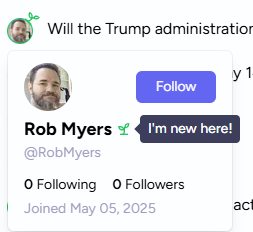Resolution criteria
This market will resolve to "Yes" if, during the Trump administration, there is credible evidence of government-initiated actions specifically targeting neurodivergent individuals—such as those with autism, ADHD, or other neurodevelopmental conditions—for detention, institutionalization, or other forms of involuntary confinement. The market will resolve to "No" if no such evidence emerges.
Background
In February 2025, President Trump signed an executive order addressing chronic disease and mental health, which controversially categorized autism and ADHD alongside chronic diseases, framing them as a "health crisis." This classification has been criticized for misrepresenting neurodevelopmental conditions and potentially stigmatizing neurodivergent individuals. (ncnewsline.com)
Additionally, the administration's broader rollback of diversity, equity, and inclusion (DEI) initiatives has impacted various marginalized groups, including those with disabilities. The termination of federal programs that mandate or promote accessibility has raised alarms about the erosion of protections for individuals with disabilities. (axios.com)
While these actions have sparked significant concern and debate, they do not constitute evidence of the administration engaging in the rounding up or involuntary confinement of neurodivergent individuals.
Considerations
Policy Interpretation: The administration's framing of neurodivergent conditions as a "health crisis" could lead to policy shifts affecting support systems and rights for neurodivergent individuals.
Monitoring Developments: Stakeholders should remain vigilant for any policy changes or actions that may directly target neurodivergent individuals for involuntary confinement or other restrictive measures.
Legal and Advocacy Responses: Advocacy groups and legal organizations are actively monitoring and responding to these developments to safeguard the rights of neurodivergent individuals.
Recent Developments Affecting Neurodivergent and Disabled Communities:
People are also trading
@mods This market closed prematurely. Creator was pinged months ago but hasn’t been active in months.

